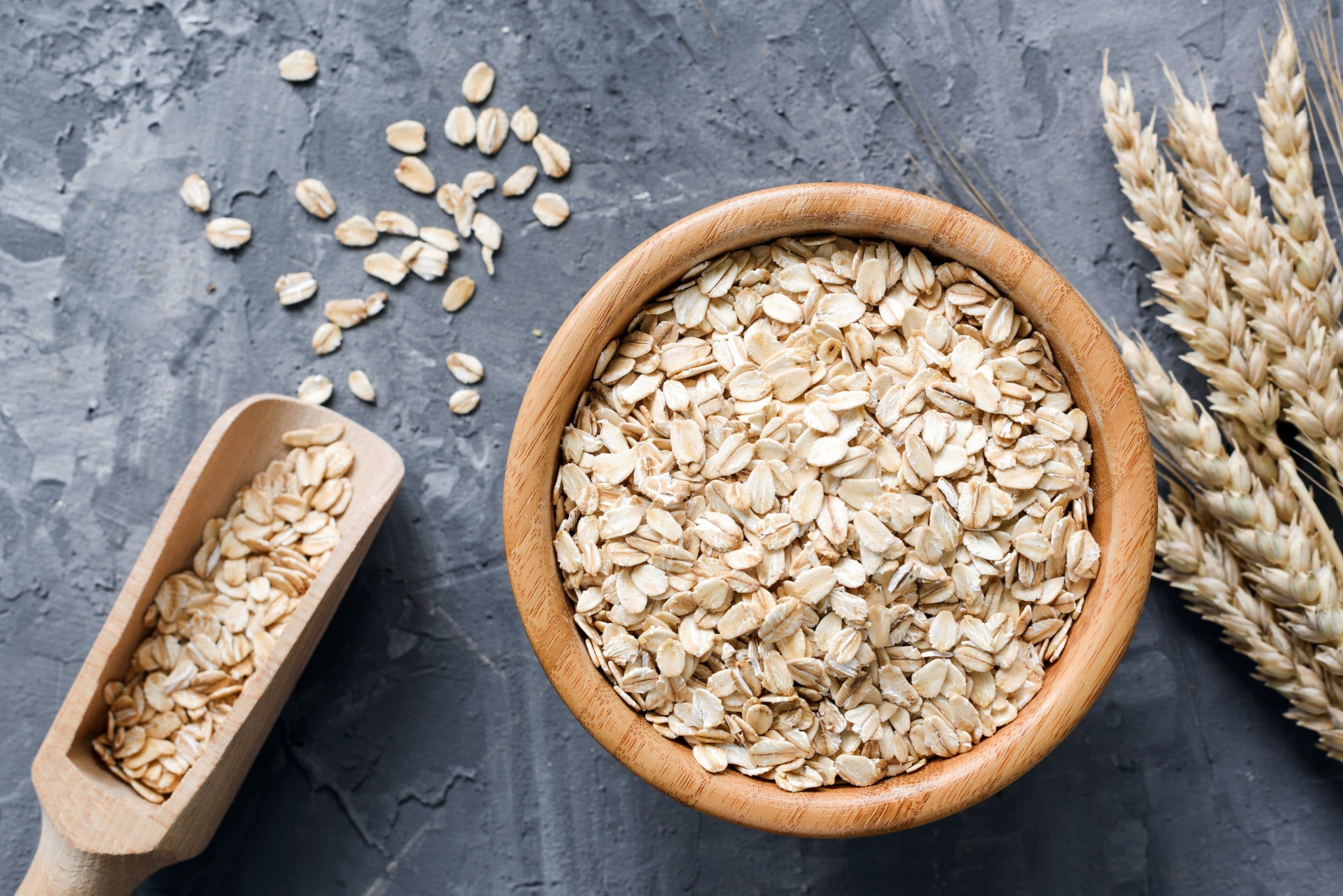Do Oats Cause Irritable Bowel Syndrome Symptoms?
- Dietary Advice (non Low FODMAP)
Oats are low in FODMAP and high in fibre. So you will likely be feeling rather frustrated that they trigger your IBS.
Being on the low FODMAP diet is restrictive enough, without low FODMAP foods also causing you issues. This can leave you feeling confused, frustrated and helpless in what to do.
However, we must always remember, IBS is a multifactorial condition. Simply just going low FODMAP is unlikely to get you the results that you need.
In this post I am going to teach you why oats can trigger irritable bowel syndrome symptoms. I will then explain how to incorporate them in your diet safely. This means you can have 1 less restriction in your diet – making life that little bit easier.

Are Oats low FODMAP?
Oats are naturally low FODMAP. The only time you need to be careful is with oatmeal, which usually made with lactose free containing milk and also flavoured oatmeal.
The safest way to use oats is to buy them plain and make your own foods such low FODMAP ingredients.
For example, overnight oats with lactose free milk and maple syrup. Or low FODMAP cereal bars.
Why Do Oats Cause IBS Symptoms?
So you may be confused by now as you know that oats are low FODMAP, so why do they cause you IBS symptoms?
Please do not forget that irritable bowel syndrome is a multi-factorial condition. So FODMAPs are just 1 element of controlling your symptoms. There are many other triggers and you must factor them all in.
So oats contain 2 elements which may be causing you the problem.
- Fibre – (oats contain around 5g of dietary fibre per portion) (1)
- Resistant starches (click here to read more)
Before you go and avoid all oats, please note that both of these elements are ‘dose dependant.’ That means you will have a certain tolerance level to them.
What I tend to find with my Take Control members is that they use oats as their go to staple low FODMAP fibre source: oatmeal for breakfast, oatcakes for lunch and then even oat biscuits and bars as snacks.
This becomes a huge load of oats! As with FODMAPs, fibre can have an accumulative affect which means that you can not blindly consume as much as you want to – especially if your gut is just not used to it.
Resistant starches are a type of fibre which is not broken down in the small gut. Instead, they are broken down by bacteria in the large bowel which creates gas and potentially IBS symptoms.
Are Cooked Oats Better For IBS?
Yes! Cooking your oats will reduce the amount of resistant starch that they contain. So avoid raw oats and opt for the cooked versions.
Do I Need To Eat Gluten Free Oats?
When you are on the low FODMAP diet, gluten can be a confusing topic. Gluten is actually a protein found in wheat, barely and rye.
Most oats will have been cross-contaminated with gluten containing products. This is why they can not be classed as gluten free, unless made in isolation specifically and then tested.
The thing about gluten is that it is not a FODMAP. So, unless you are coeliac then you do not need to worry about this! Just by normal oats and save yourself 1 less stress in your IBS diet.
You can read more about the difference between FODMAPs and gluten in my other post here.
Oats do contain a type of gluten called beta-gluten. Some people with coeliac disease are thought to potentially react to beta-gluten as well as the gluten found in wheat, barely and rye (2). However this is very rare and your dietitian will advise you accordingly.
What Quantity of Oats is Safe To Eat With IBS?
There is no known ‘safe’ quantity of oats for those with irritable bowel syndrome. I know this can be a very frustrating answer when all you want me to say is ‘eat X amount and you will have no symptoms.’ But IBS doesn’t really work like this.
IBS is very individual to the person. So I would advise that you play around with your quantities and track your symptoms.
1 portion of oats is around 40-50g.
Bottom Line
Oats can trigger irritable bowel syndrome symptoms. But you can still include them in your diet in small quantities to gain the multiple health benefits without the symptoms.